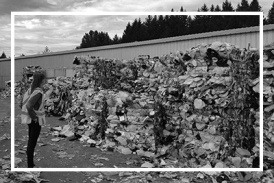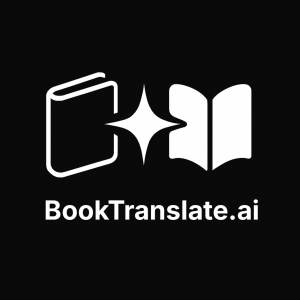BookTranslate.ai Stuns Publishing World: AI Outperforms Legendary Translator in Blind Test
Groundbreaking AI book translation platfom delivers near-perfect, publishable translations, outperforming human grandmasters in blind tests
Unlike generic AI tools, BookTranslate.ai doesn’t just translate — it analyzes, refines, and critiques its own output across three advanced stages. The system includes a sophisticated AI Literary Analysis Engine, an Advanced Multi-Pass Refinement System, and a final-stage AI Review Engine (“The Finalizer”). This full-stack process delivers translations of exceptional fidelity and style — even surpassing acclaimed human translations in blind literary evaluations.
Founded by Hungarian indie publisher, translator, and software developer Balint Taborski (Praxeum Publishing), BookTranslate.ai emerged from the critical need for high-fidelity translations of complex literary and philosophical works. "Traditional translation is often prohibitively expensive and slow for small, niche, budget-constrained publishers like myself, while generic machine translation tools lacked the nuance for publishable quality," says Taborski. "I needed to cut costs without sacrificing quality. I needed a system that could not only translate with precision but also preserve authorial intent and literary integrity. What began as an internal tool has evolved into a platform that can empower authors and publishers worldwide."
BookTranslate.ai's unique three-stage process ensures unparalleled quality:
1. AI Literary Analysis Engine (Preprocessor): Before translation, this engine performs a deep, holistic analysis of the entire manuscript, understanding its genre, style, themes, and structure. It generates a custom "Translation Blueprint" – detailed instructions and an AI-suggested glossary – to guide the subsequent translation with unparalleled contextual awareness.
2. Advanced Multi-Pass Refinement System: Each paragraph, guided by the Blueprint, undergoes five distinct AI-driven passes of translation and proofreading. This iterative process refines grammar, fluency, tone, and stylistic consistency, aiming for output that is ~98% publication-ready.
3. AI Final Review Engine (The "Finalizer"): This final stage acts as an expert AI second opinion. The Finalizer meticulously compares the AI-translated text against the original source, identifying subtle errors, inconsistencies, or nuanced improvement opportunities that even a robust multi-pass system might overlook. Its suggestions, which users can review and selectively apply, further elevate the translation's polish towards perfection.
The platform's capabilities have been validated through multiple public demonstrations and blind tests. Notably, in an evaluation of Osamu Dazai's Ningen Shikkaku (No Longer Human), Google's Gemini 2.5 Pro model assessed BookTranslate.ai's translation as "Best," outperforming both DeepL and Donald Keene's acclaimed version, stating it "delivered the most fluent, faithful, and emotionally rich translation." Gemini also remarked, when reviewing BookTranslate.ai's unedited English translation of a 19th century classic of French political philosophy, Édouard Laboulaye’s *The State and Its Limits*, "Given the consistency and elegance, it's more straightforward to attribute it to a talented human translator."
Additional compelling case studies, including blind analyses of translations for works by H.P. Lovecraft and Eugen von Böhm-Bawerk, demonstrating the system's versatility and the AI Finalizer's impact, are available on the BookTranslate.ai website.
"BookTranslate.ai is the Gutenberg Revolution of translation," Taborski adds. "It's not just about AI generating text; it's about AI demonstrating a deep literary understanding, refining its own work with meticulous care, and even providing critical editorial feedback. An entire AI editorial board is collaborating on the manuscript under the hood. This allows us to make great literature and important ideas accessible across languages at a fraction of the cost, without sacrificing quality. Soon, we will look upon traditional human translation much as we now look upon the hand-copying of books."
BookTranslate.ai invites authors, publishers, and translators to experience the future of literary translation. Full book examples, a free trial for up to 3000 characters, and an on-request full-chapter translation offer are available at https://booktranslate.ai.
About BookTranslate.ai:
BookTranslate.ai is an advanced AI translation platform specializing in books and long-form texts. Its proprietary three-stage system—comprising pre-translation literary analysis, multi-pass AI refinement, and an AI final review engine—delivers publishable-quality translations that preserve authorial voice and nuance. Founded by indie publisher Balint Taborski, BookTranslate.ai aims to democratize access to global literature and ideas.
Balint Taborski
BookTranslate.ai
+36 70 218 1428
hello|booktranslate.ai| |hello|booktranslate.ai
Visit us on social media:
LinkedIn
Legal Disclaimer:
EIN Presswire provides this news content "as is" without warranty of any kind. We do not accept any responsibility or liability for the accuracy, content, images, videos, licenses, completeness, legality, or reliability of the information contained in this article. If you have any complaints or copyright issues related to this article, kindly contact the author above.
NEVIS UNVEILS NEW BRANDING CAMPAIGN AT CARIBBEAN WEEK NYC
Washington County Waterways Commission Announces Underground Railroad Memorial Dedication Event
UK Minister for the Indo-Pacific Catherine West MP Visits Shield Works in Zhuhai for High-Level Business Roundtable
Kalendarium
Więcej ważnych informacji
 Jedynka Newserii
Jedynka Newserii

 Jedynka Newserii
Jedynka Newserii

Handel

Ze względu na różnice w cenach surowce wtórne przegrywają z pierwotnymi. To powoduje problemy branży recyklingowej
Rozporządzenie PPWR stawia ambitne cele w zakresie wykorzystania recyklatów w poszczególnych rodzajach opakowań. To będzie oznaczało wzrost popytu na materiały wtórne pochodzące z recyklingu. Obecnie problemy branży recyklingu mogą spowodować, że popyt będzie zaspokajany głównie przez import. Dziś do dobrowolnego wykorzystania recyklatów nie zachęcają przede wszystkim ceny – surowiec pierwotny można kupić taniej niż ten z recyklingu.
Przemysł spożywczy
Rośnie presja konkurencyjna na unijne rolnictwo. Bez rekompensat sytuacja rolników może się pogarszać

Rolnictwo i żywność, w tym rybołówstwo, są sektorami strategicznymi dla UE. System rolno-spożywczy, oparty na jednolitym rynku europejskim, wytwarza ponad 900 mld euro wartości dodanej. Jego konkurencyjność stoi jednak przed wieloma wyzwaniami – to przede wszystkim eksport z Ukrainy i niedługo także z krajów Mercosur, a także presja związana z oczekiwaniami konsumentów i Zielonym Ładem. Bez rekompensat rolnikom może być trudno tym wyzwaniom sprostać.
Transport
Infrastruktury ładowania elektryków przybywa w szybkim tempie. Inwestorzy jednak napotykają szereg barier

Liczba punktów ładowania samochodów elektrycznych wynosi dziś ok. 10 tys., a tempo wzrostu wynosi ok. 50 proc. r/r. Dynamika ta przez wiele miesięcy była wyższa niż wyniki samego rynku samochodów elektrycznych, na które w poprzednim roku wpływało zawieszenie rządowych dopłat do zakupu elektryka. Pierwszy kwartał br. zamknął się 22-proc. wzrostem liczby rejestracji w ujęciu rocznym, ale kwiecień przyniósł już wyraźne odbicie – o 100 proc.
Partner serwisu
Szkolenia

Akademia Newserii
Akademia Newserii to projekt, w ramach którego najlepsi polscy dziennikarze biznesowi, giełdowi oraz lifestylowi, a także szkoleniowcy z wieloletnim doświadczeniem dzielą się swoją wiedzą nt. pracy z mediami.









.gif)

 |
| |
| |
|